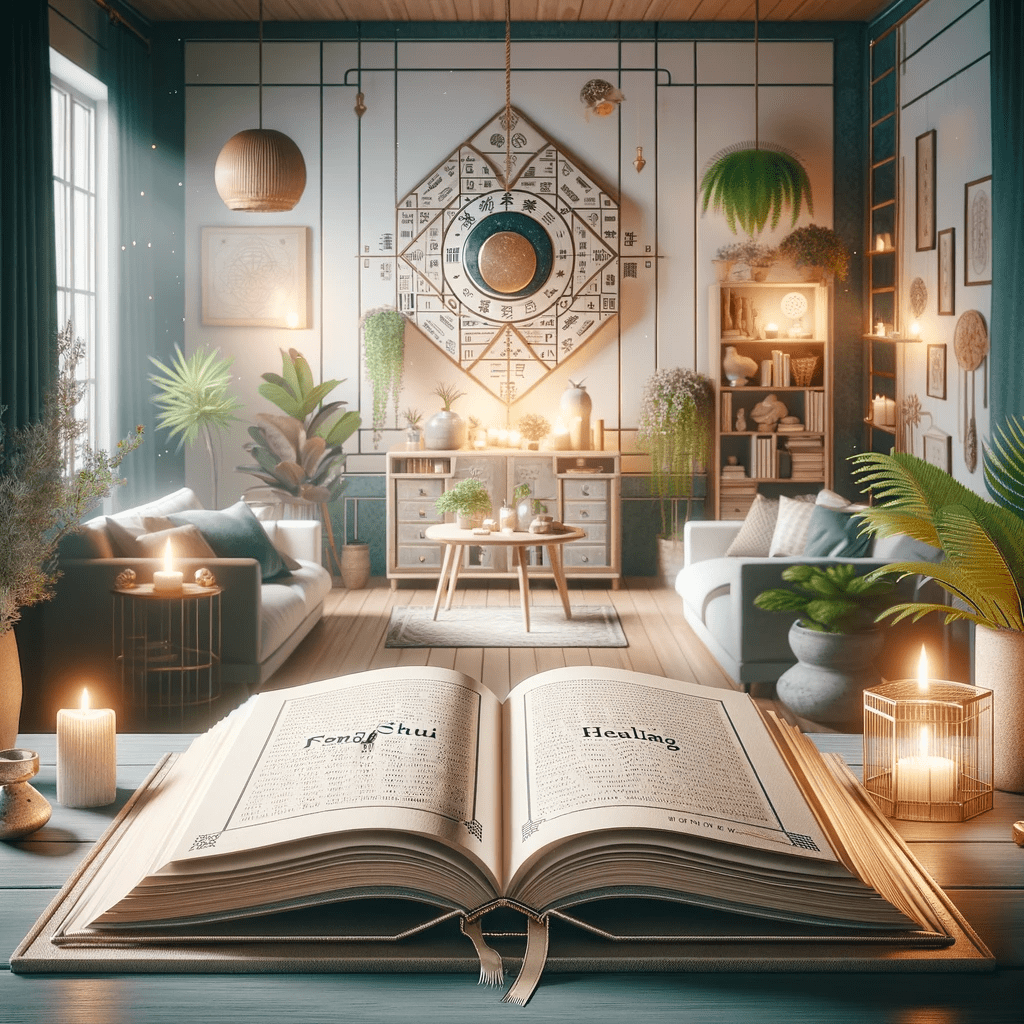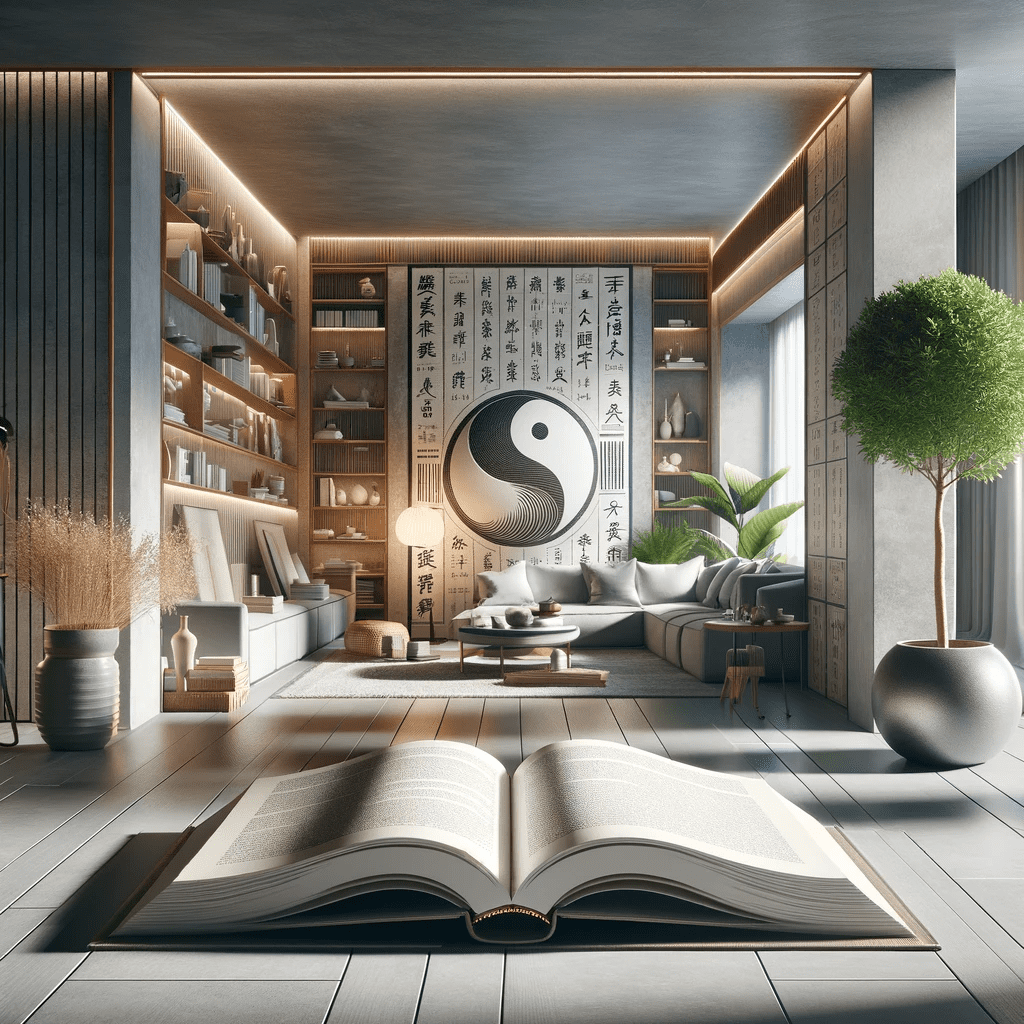Definition
Feng Shui actively arranges living spaces to enhance positive energy flow. This ancient Chinese practice fosters harmony and balance. Strategic placement in living areas aims to boost well-being and positivity.
Expanded Explanation
Originating in China, Feng Shui, also known as Chinese geomancy, is used to optimize spatial arrangement and orientation of the flow of energy (Qi). It’s believed to improve health, wealth, and personal relationships. This practice has been integrated into various cultural and architectural contexts worldwide, making it a globally recognized system.
Importance
Feng Shui is crucial for creating harmonious environments enhancing well-being and productivity. It’s applied in residential, commercial, and public spaces, influencing architecture, interior design, and landscaping. This practice enhances aesthetics and balances the energies in a given space, impacting the occupants’ quality of life.
Context and Usage
Feng Shui guides furniture and décor placement in residential settings to optimize energy flow. In business, it’s used to design office layouts for improved productivity and success. Public spaces, like parks and buildings, also use these principles to create harmonious and inviting environments for visitors.
Examples
Example 1: In a home, Feng Shui might dictate the placement of a bed away from the door to ensure a peaceful sleep environment, promoting rest and rejuvenation.
Example 2: Businesses often position their entrances facing certain directions and use specific colours in their branding and interior design, following Feng Shui principles to attract prosperity and success.
Understanding the Glossary Term
A common misconception about Feng Shui is that it’s solely about superstition or decoration. However, it’s a comprehensive approach combining aesthetics, psychology, and environmental factors to create balanced and harmonious spaces.
Related Glossary Terms
Home Organization
The “Home Organization” post from Sunny Days Go! Defines it as the systematic arrangement of living space, emphasizing its role in enhancing functionality and aesthetics while promoting a clutter-free and harmonious environment. Furthermore, it describes home organization, or domestic arrangement, as efficiently utilizing spaces within a home.
This involves decluttering, categorizing, and strategically placing items to simplify household management, create a visually appealing and stress-free living area, and transform daily routines, making tasks easier and more enjoyable. This concept aligns closely with Feng Shui principles, focusing on creating harmonious and balanced living spaces.
Happy Home
The “Happy Home” post on Sunny Days Go! Defines it as a living environment that promotes comfort, well-being, and a sense of belonging for its occupants. It emphasizes fostering positive relationships and personal growth within the home.
Additionally, it describes a happy home as a sanctuary that nurtures personal growth, positive relationships, and overall well-being, contributing to a more fulfilling and enjoyable life experience. This concept closely aligns with Feng Shui principles, which also focus on creating balanced, harmonious, and positive living spaces.
Visual and Reading Aids
External Resources
Feng Shui Society Resources: This resource provides a comprehensive overview of Feng Shui principles, including history, types, and applications in various settings.
Feng Shui Society’s Free Feng Shui Calculators: These tools offer personalized insights based on birth data, helpful in understanding individual energy according to Feng Shui.
Related Articles
The Ultimate Guide to Creating a Happy Home
“The Ultimate Guide to Creating a Happy Home” on Sunny Days Go! Emphasizes the importance of organized and functional living space for a joyful home. The guide suggests that a tidy and well-organized home can significantly influence one’s mood and overall well-being, highlighting the impact of environmental orderliness on mental health.
Additionally, it advises optimizing lighting as a critical step towards creating a happier living space. The guide points out that natural light and various light sources, such as floor lamps and task lighting, can substantially enhance a home’s brightness and welcoming nature, contributing positively to one’s mood. This post aligns well with Feng Shui principles, which advocate for harmonious and balanced living environments.
How to Maximize Human Energy Levels Throughout the Day
The post “How to Maximize Human Energy Levels Throughout the Day” on Sunny Days Go! Explores the concept of human energy levels and their fluctuations throughout the day. It emphasizes the natural phenomenon of varying energy levels, suggesting that understanding these patterns is critical to achieving peak productivity and overall well-being. The post aims to provide insights on effectively managing and maximizing energy levels.
Further, it highlights several factors that impact these energy oscillations. Paramount among them is the quality of sleep, as a poor night’s sleep can significantly drain energy the following day. Nutrition is another crucial factor; balanced meals provide the necessary fuel for the body. Additionally, hydration, stress, and physical activity are critical elements influencing daily energy levels.
Feng Shui creates balanced environments, boosting inhabitants’ well-being and energy. The post “How to Maximize Human Energy Levels Throughout the Day,” while not directly addressing Feng Shui, shares this goal. Both focus on enhancing life quality by optimizing environmental and personal factors for energy and well-being.
While the post focuses on personal health and energy management, its theme of enhancing well-being aligns with Feng Shui. This connection makes it a related article, offering insights on achieving balance and well-being, the key to Feng Shui philosophy.


